ESX and the Service Console are going away. Theories on this are evident – plastered all over the internet: here, here, here, here, here, here, here, etc.
Go to Google and perform the following search:
esx “service console” “going away”
Better yet, let me Google that for you (Thank you Doug for the introduction to this wonderfully funny tool!)
ESXi was first introduced on December 10th, 2007. We’ve had 2 1/2 years to get familiar with this hypervisor which is minimal in size but as feature rich, as powerful, and as fast as ESX. The management tools for ESXi have evolved and the platform has been given its due time to prove its stability and viability as an enterprise bare metal hypervisor in the datacenter.
I conducted an informal poll on Twitter this week and a large number of respondents claimed to still be using ESX. More alarming was the disposition of some who have no plans whatsoever to go to ESXi. One person went so far as to say the Service Console would have to be pried from his cold dead hands.
If you have not yet broken your dependency on ESX and the Service Console, I suggest you do it soon. Time is running out. Don’t wait until the last minute. Be sure you leave yourself enough time to architect and test a sound ESXi design for your datacenter, as well as get familiar with the tools you’ll be dependent on to manage the ESXi hypervisor.
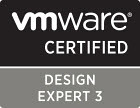
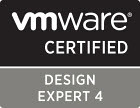


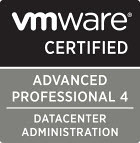
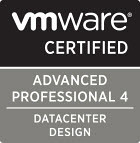
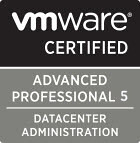
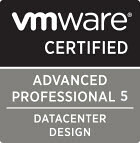
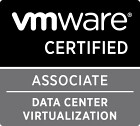

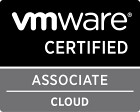





We are moving all hosts to ESXi this quarter. We’ve stepped up our powershell and vma skills and have found the transition to be very smooth. Love the security and agility that ESXi provide! Not going to miss the service console very much…
Service Console will be gone, yes. The move will be to ESXi based Hypervisor setup.
However the service Console and Command line is not completely lost, VMware has the vMA virtual appliacnce and RemoteCLI. so people should Chill. the only people should be concerned are users that havent upgraded their 3rd party application to versions that support ESXi (ie: vReplicator)
I suggest that one reason for the slow uptake is that many 3rd-party apps have been slow to support ESXi and that VMware does not necessarily make it easy for people to transition by virtue of requiring a million new things to become able to work with ESXi. Until people know that every single 3rd-party app they use will support ESXi, they won’t readily switch over. Also people have said in the forums that vDR is not very good yet.
Jason – very true, very correct.
There’s a shorter and shorter list of reasons to be dependent on the service console (some still exist).
But, it’s usually not a rational reason – it’s more along the lines of “well, this is how I did it in the service console”.
Personally, I moved my whole lab to ESXi installable just to force myself to start using vMA for everything. I got used to it, and now it’s just natural for me.
For the record, I’m the ‘cold dead hands’ person ;-). Joking apart, I do really like the service console and will probably miss it, but have been using esxi a lot lately and while I don’t have immediate plans to migrate my existing esx hosts, I don’t see it as a major pain, since we’re standardizing with ‘official’ management tools (vcenter, powercli, etc) anyway. So, while my personal taste still favours the SC, there’s so much coolness in esx (and esxi) that I really won’t protest when the glorious ESX will come to an end. There are lots of valid reason to shrink and minimize the hypervisor, and to standardize it as much as possible (much more predictable envs for vmware support to deal with, to mention one).
Still, it sounded funny, didn’t it? 😉
@Chad Sakac – I support both so my lab straddles both platforms; I actually run ESX and ESXi in the same cluster since it is supported by VMware and I have a very limited number of hardware hosts. Like yourself, I deployed ESXi on mainstream lab servers to “force myself” into learning the RCLI and vMA.
Funny, I read this about 15 minutes after officially documenting that we will be using ESXi instead of ESX for an upcoming data center build-out. Maybe I’ll add a link to this blog post 😉
http://www.unitrends.com/weblog/index.php/2010/06/07/why-vmware-is-committing-suicide-whistling-past-the-graveyard/
This is an interesting viewpoint on ESXi — that VMware will be eaten out from under just like Novell was. VMware fans are welcome to say how awesome VMware is, but everyone said the same about Novell and look what happened. 🙂
Be nice if some vExperts have time and interest to comment about this link’s ideas.
Thank you, Tom
Isn’t the Service Console still needed for some configurations? I remember being forced to make some changes in the SC when configuring my vswitch and ISCSI portgroups to handle jumbo’s, and multipathing.
Great post.
@Sketchy – Jumbo Frames can be enabled on ESXi via Tech Support Mode if needed:
(http://kb.vmware.com/selfservice/microsites/search.do?language=en_US&cmd=displayKC&externalId=1003677)
There’s very little that can’t be achieved on ESXi, in comparison to “traditional” ESX via a combination of vCenter, RCLI, and vMA as has already been mentioned. The crux for several of our customers at the moment, is the reliance on the Service Console for 3rd party application integration (vReplicator for example), and the pervasive mentality that “less” cannot possibly be “more”.
Having forced myself to get to grips with ESXi over the past few months, I can honestly say that i’m sold. This time last year I too would have been a “cold dead hands” person… no more!
My dependence on the service console stems from the lack of useful troubleshooting tools in the spartan ESXi unsupported console (nevermind the fact that it is unsupported.)
That and whenever other VMware tools (looking at you SRM) don’t do something gracefully and now I have to scour a dozen datastores registering (or unregistering) virtual machines.
vMA hardly provides sufficient flexibility with automation and PowerCLI is going to require learning a new toolset to replace one that is already pretty much working. It isn’t so much that people are “clinging to old ways” as it is that people already have tools, etc. in place to manage ESX via the service console.
Things like nagios probes, scripts to kick VMs in the pants, etc. will all need to be re-developed using something like PowerCLI which is going to suck for a lot of shops who have tons of scripts written in perl, Python or even bash.
“My dependence on the service console stems from the lack of useful troubleshooting tools in the spartan ESXi unsupported console (nevermind the fact that it is unsupported.)”
My understanding is that the wording surrounding the use of Tech Support Mode” will be ammended to remove the references to “Unsupported” in future releases of ESXi and it’s associated documentation.
In it’s current guise it is supported, albeit under the direction/instruction of VMware Tech Support.
I don’t think the hardware monitoring on ESXi is as mature as on ESX. Dell and HP have some sort of custom “offline” packs and what not, but they’ve never managed to notify me about broken memory and disks. However the full agents in ESX have always worked, which is why all our hosts are ESX nowadays. If ESX is going away, I sure hope they’ll fix this issue since its a deal breaker right now.
Can you increase the resolution in the vMA? Being stuck with it so small makes it hard to view all VMs and such when looking at a densly populated host with resxtop etc. I have been getting along just fine with the vMA and esxi. I made the move with the transition to vSphere and also went usb thumbdrives/diskless servers. Pretyt neat-o.
Hi,
Is there any limit on the number of hosts that can be managed by a vMA? ANy limit on the number of VMs? Is there any best practice guide on this?
Hello,
Is there any limit on the number of hosts that can be managed by a vMA? ANy limit on the number of VMs? Is there any best practice guide on this?